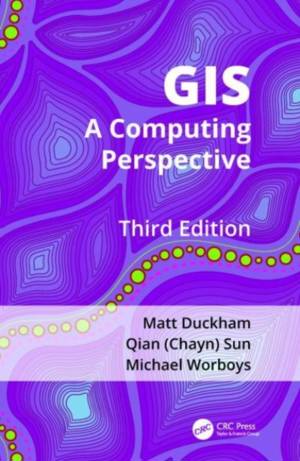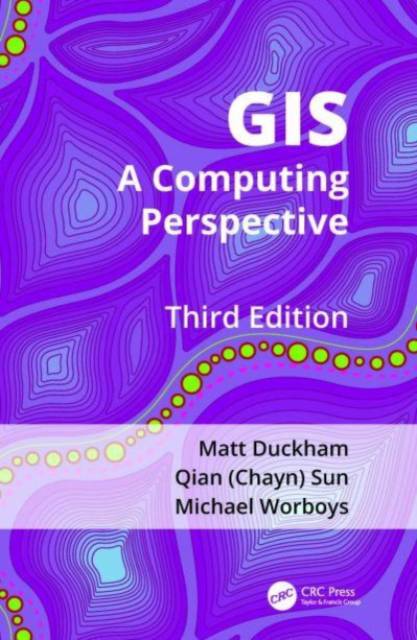
- Retrait gratuit dans votre magasin Club
- 7.000.000 titres dans notre catalogue
- Payer en toute sécurité
- Toujours un magasin près de chez vous
- Retrait gratuit dans votre magasin Club
- 7.000.0000 titres dans notre catalogue
- Payer en toute sécurité
- Toujours un magasin près de chez vous
Description
Following two successful editions, the third edition of GIS: A Computing Perspective has been completely revised and updated, with extensive new content reflecting the significant progress that has been made in the realm of GIS within the last 20 years. Major new topics covered for the first time in this edition include: graph databases and graph query languages, ontology engineering and qualitative spatial reasoning, geosensor networks and GeoAI, decentralized computing and online algorithms, and critical GIS and data sovereignty.
Features
- Includes an entirely new chapter on AI and GIS, including ontologies and the Semantic Web, knowledge representation (KR) and spatial reasoning, machine learning and spatial analysis, and neural networks and deep learning
- Presents new material reflecting the advances made in cloud computing, stream computing, and sensor networks, as well as extensively revised and updated content on cartography, visualization, and interaction design
- Connects the technology to the social aspects and implications of GIS, including privacy and fair information practices, FATE (fairness, accountability, transparency, and ethics), and codes of conduct for responsible use of GIS
- Integrates the necessary background to foundational areas, such as databases and data structures, algorithms and indexes, and system architecture and AI, provided in context so readers new to those topics can still understand the concepts being discussed
- Incorporates over 20 carefully explained spatial algorithms; over 60 inset boxes with in-depth material that enriches the central topics; and more than 300 color figures to support the reader in mastering key concepts
- Welcomes a new coauthor, Qian (Chayn) Sun, to the third edition, who brings her expertise in topics such as web mapping, cloud computing, critical geography, and machine learning with big spatial data
Intended for anyone interested in understanding GIS, especially students taking upper-level undergraduate and graduate courses in computer science and geography, as well as academics, researchers, practitioners, and professionals working in the field and involved in advanced GIS projects.
Spécifications
Parties prenantes
- Auteur(s) :
- Editeur:
Contenu
- Nombre de pages :
- 472
- Langue:
- Anglais
Caractéristiques
- EAN:
- 9781466587199
- Date de parution :
- 16-08-23
- Format:
- Livre relié
- Format numérique:
- Genaaid
- Dimensions :
- 178 mm x 254 mm
- Poids :
- 1065 g

Les avis
Nous publions uniquement les avis qui respectent les conditions requises. Consultez nos conditions pour les avis.






